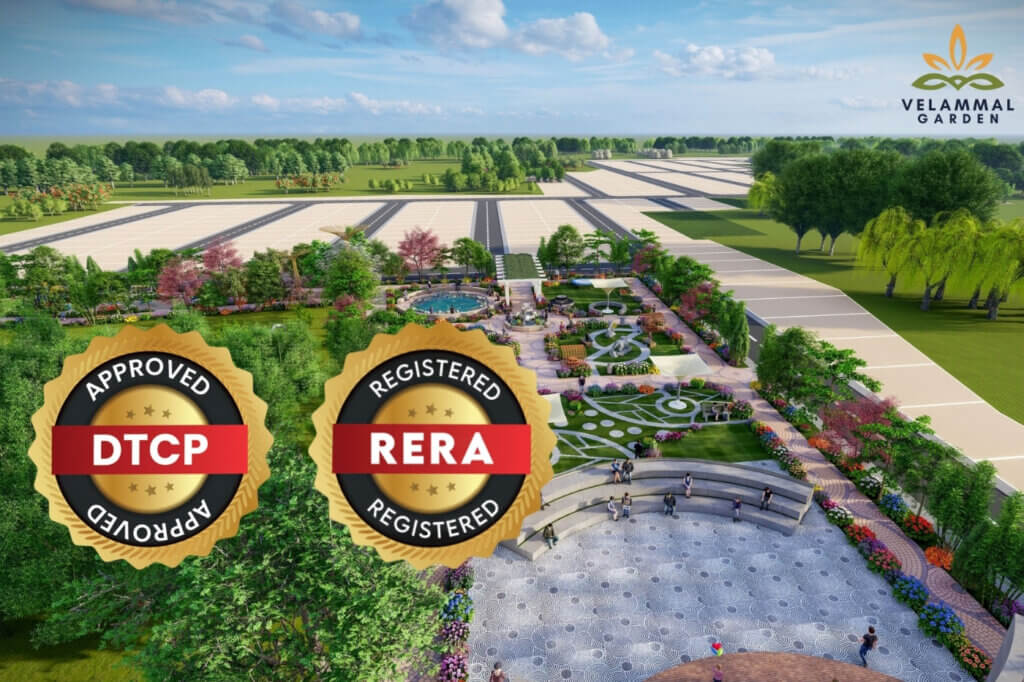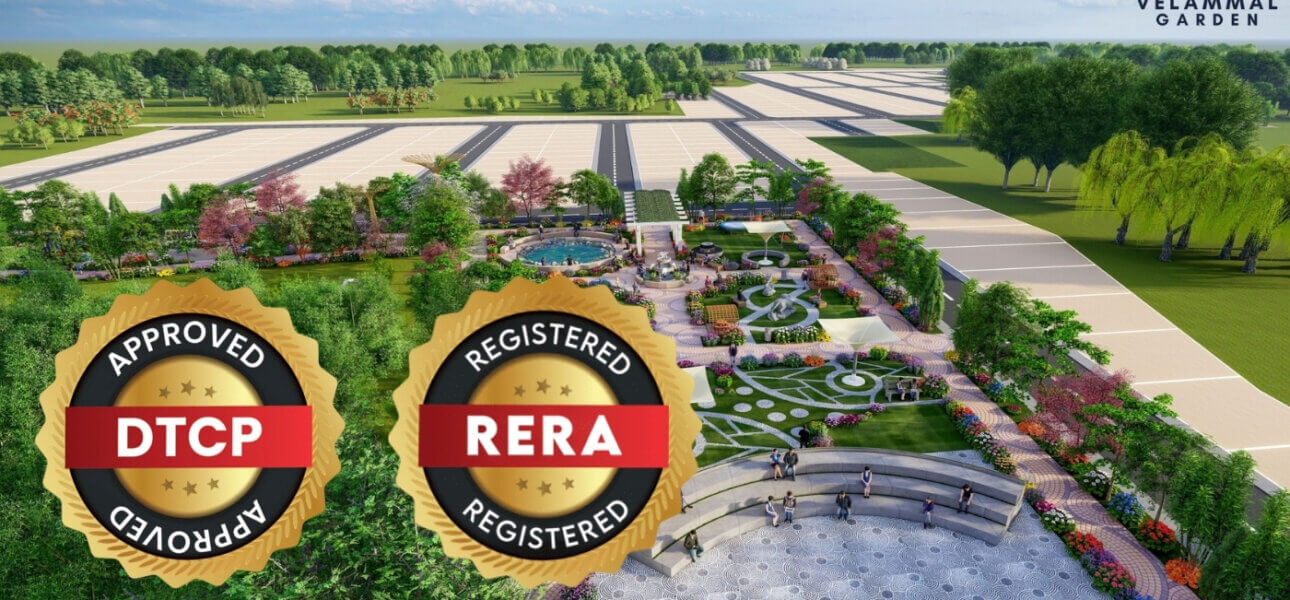Buying a plot is exciting, but paperwork can feel confusing. Two documents often sound similar yet do very different jobs. The Sale Agreement is your promise for a future sale. The Sale Deed is the final transfer of ownership at the Sub Registrar Office. Understanding what changes at registration helps you plan better, avoid delays, and protect your money.

The Big Picture: Agreement vs Deed
A Sale Agreement is a contract between buyer and seller to sell the property on agreed terms at a later date. It records the price, timeline, milestones, and responsibilities. It does not transfer ownership.
A Sale Deed is the document that actually conveys the title from seller to buyer. It is signed and registered at the Sub Registrar Office. After registration, your name enters revenue records through patta or mutation as applicable.
Think of it like this. The Sale Agreement reserves your plot and locks the terms. The Sale Deed hands you the keys and the legal title.
Why Both Matter in Tamil Nadu
In Tamil Nadu, property transactions are governed by state stamp and registration laws along with central contract law. For plotted developments in the Padappai Oragadam belt, you will also see DTCP approvals and, when applicable, RERA registrations. A clean DTCP layout and RERA registration bring transparency while the Agreement and Deed complete the legal transfer. This is exactly how we operate at velammalgarden.com for our DTCP and RERA approved community.
What Exactly Changes at Registration Day
Here is what typically changes when you move from Sale Agreement to Sale Deed.
- Status of ownership
From promise to transfer to actual transfer of title in your name. - Possession and handover
Agreement sets conditions and date. Deed confirms delivery of possession as per terms and hands over rights and easements. - Payment milestones
Agreement details the schedule like booking amount and stage wise payments. Deed confirms final consideration paid and received. - Encumbrance and indemnities
Agreement lists obligations of the seller to clear dues. Deed records seller warranties of clear title as on the date of registration. - Boundaries and measurements
Agreement mentions proposed plot number and area. Deed records final survey number, boundaries, plot extent and layout reference with plan numbers as applicable. - Compliance confirmations
Agreement may refer to DTCP and RERA status. Deed annexes approvals, layout numbers, and confirms that the sale complies with applicable rules. - Risk and insurance
Agreement sets who bears risk before registration. Deed shifts risk, taxes, and maintenance responsibilities to the buyer from the date of registration unless stated otherwise. - Right to resell or mortgage
Agreement restricts premature transfer. Deed enables you to mortgage, resell, or build subject to layout bylaws.
Role of DTCP and RERA in Your Documents
- DTCP layout approval
Ensures roads, OSR spaces, and plot dimensions follow planning norms. Your Deed should reference the DTCP approval number and layout plan so that your title is tied to a compliant development. - RERA registration where applicable
Brings project level transparency on timelines, amenities, and promoter details. Your Agreement should reflect the RERA number and obligations. Your Deed should not contradict the declared specifications or common area rights.
At Velammal Garden in Padappai, the layout is DTCP approved and the project is RERA compliant, so your documents stay aligned with planning and consumer protection standards. Learn more at velammalgarden.com.
Key Clauses in a Strong Sale Agreement
- Property identification with plot number, survey details, extent
- Total consideration, taxes, and payment schedule
- Timeline for registration and possession
- Default, delay, and termination remedies
- Responsibility for approvals, patta, and utilities
- Clear title confirmation and encumbrance free undertaking
- Allocation of common areas and road access rights
- Dispute resolution and jurisdiction
A precise Agreement avoids surprises on registration day.
Must Haves in Your Sale Deed
- Correct names as per ID proofs and PAN
- Final plot boundaries and measurements matching the approved plan
- Consideration amount and mode of payment acknowledged
- Recitals connecting chain of title with parent deeds
- Warranty of marketable title and indemnity against past claims
- Delivery of possession and handing over of original documents
- Reference to DTCP approval and RERA registration where applicable
- Buyer rights to construct as per local bylaws and layout covenants
Chennai Padappai Oragadam Context
The Padappai Oragadam belt sits in a fast developing corridor of South Chennai connected by Vandalur Walajabad Road and proximity to SIPCOT industrial zones. Demand for villa plots is driven by job hubs and planned infrastructure. In such active markets, timelines matter. A well drafted Agreement locks price and delivery dates. A clean Deed on registration day ensures you can apply for patta, initiate design approvals, and start house construction without delay.
Timeline From Booking to Registration
- Token and booking
Reserve your plot with a receipt and booking form. - Drafting the Sale Agreement
Include layout approvals, plot sketch, and payment milestones. - Due diligence period
Verify parent documents, encumbrance certificate, patta or chitta extracts, and tax receipts. - Bank loan process if applicable
Bank legal and technical checks align with your Agreement. - Final payment
As per schedule before registration. - Registration of Sale Deed
Execute and register at the Sub Registrar Office. Collect the registered copy and initiate revenue record updates. - Post registration
Apply for patta or mutation and update address with the association or developer office.
Common Mistakes to Avoid
- Mismatch between Agreement plot area and Deed area
- Missing annexures such as layout plan, approval copies
- Ignoring set back or access clauses in layout conditions
- Delayed payment without a documented extension
- Not capturing possession delivery in the Deed
- Forgetting indemnity clauses for hidden dues
Practical Tips for a Smooth Registration
- Keep name spellings consistent across Aadhaar, PAN, and bank records
- Carry originals and two sets of copies of approvals and ID proofs
- Recheck boundary descriptions against the latest layout sketch
- Align Deed language with loan sanction conditions if you are availing finance
- Plan registration timing to avoid month end rush at the Sub Registrar Office in the Chennai region
When You May Need a Tripartite Deed
If you have a bank loan, the lender may require joining the registration or a separate memorandum to secure the mortgage. Keep the Agreement and Deed clauses consistent with bank requirements to avoid rework.
Final Word
The Sale Agreement and the Sale Deed are two halves of one successful transaction. One secures your deal. The other secures your title. In a regulated, fast growing micro market like Padappai Oragadam, aligning both with DTCP and RERA frameworks gives you clarity, speed, and peace of mind. For DTCP and RERA approved villa plots with hand holding from booking to registration, explore velammalgarden.com.
FAQs
What is the difference between Sale Agreement and Sale Deed in Tamil Nadu
A Sale Agreement is a promise to sell in the future with conditions and payment milestones. A Sale Deed is the registered document that legally transfers title to the buyer.
What changes at registration compared to the Agreement
Ownership transfers, possession is recorded, final consideration is acknowledged, and title warranties take effect. Your rights to mortgage, resell, and build generally begin after the Sale Deed is registered.
How do DTCP and RERA affect the sale agreement vs sale deed what changes at dtcp rera tamil nadu
DTCP approval ties your plot to a compliant layout and RERA ensures promoter disclosure. The Agreement cites these approvals and obligations while the Deed anchors your title to the approved plan and registered project specifics.
Can I register the Sale Deed before completing all payments
Usually no. The Deed records full and final consideration unless the bank disburses at the time of registration. Follow the payment schedule in your Agreement and bank sanction terms.
After registration what should I do next in Padappai Chennai
Apply for patta or mutation, keep certified copies of your Deed, update your association or developer records, and begin plan sanction for house construction as per local bylaws and layout covenants.
Disclaimer
This article is for general guidance. Stamp duty, registration processes, and documentation requirements can change. Always consult your legal advisor or the local Sub Registrar Office for current rules before execution.


